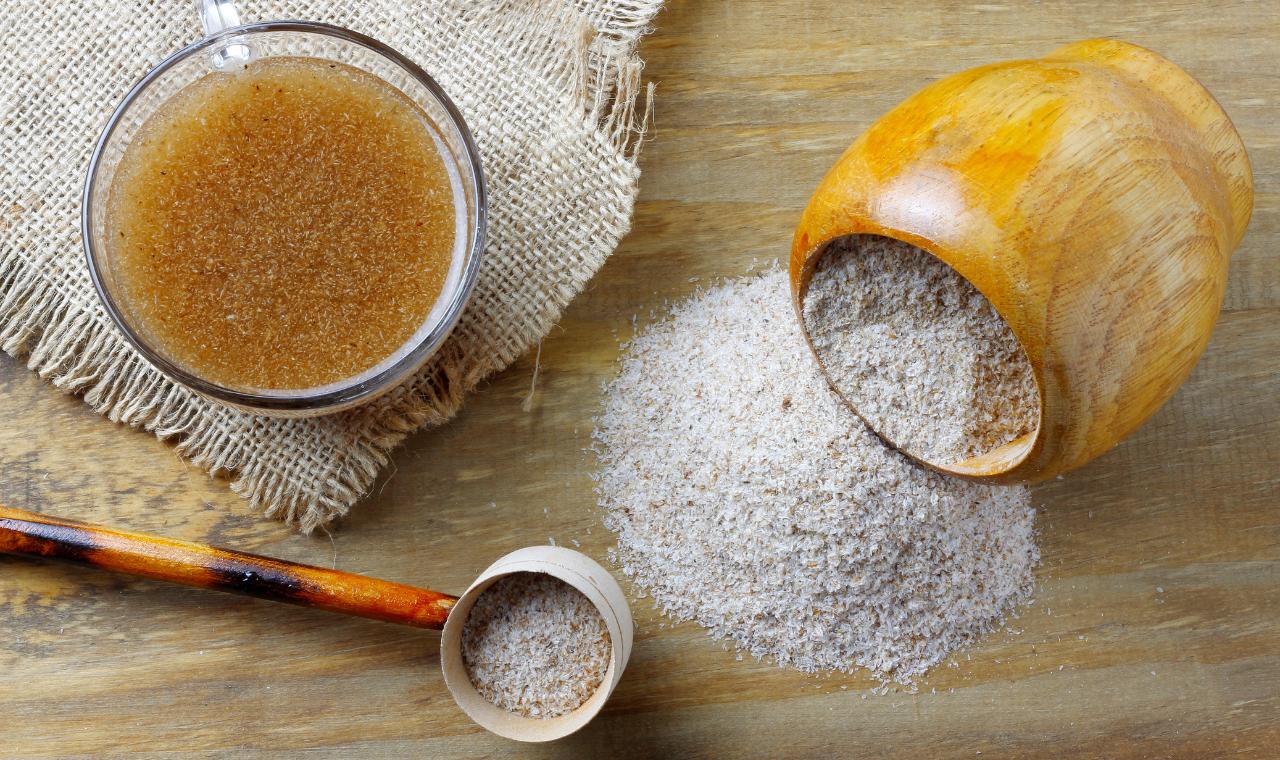Known as Indian Plantago, psyllium husk are a form of fiber derived from the Plantago ovata plant. It acts as a natural laxative, absorbing water in the gut, and easing bowel movements, thus providing relief from constipation.
With unhealthy eating habits becoming commonplace, constipation is an increasing issue, often leading to health problems like hemorrhoids and anal fissures. While the typical recommendation for psyllium targets those struggling with constipation, its advantages extend far beyond. Indeed, it’s aid with broad applications for overall well-being.
Consuming 10 grams daily, along with probiotics, may help in managing Crohn’s disease. Studies suggest psyllium’s role in cholesterol regulation, thereby reducing heart disease risks—vital for individuals over 50.
Psyllium Husk: Lowering Cardiovascular Disease Risks
High cholesterol is a common sign of discontentment from your body about your diet. The fiber in psyllium husks assists in lowering blood pressure, regulating lipid levels, and strengthening the heart muscle.
If you’re grappling with high cholesterol, consider discussing increased fiber intake with your doctor. It could be psyllium or other nutrients. A healthy diet significantly helps in preventing heart ailments. Apart from psyllium, fibers are found in cereals, fruits, and vegetables.
Assisting Individuals with Diabetes
Maintaining an optimal weight often presents a hurdle, particularly for individuals battling chronic illnesses such as diabetes. Psyllium husk serves a dual purpose here, not only by mitigating the threat of heart disease and managing blood glucose levels but also promoting weight loss and fostering consistent healthy weight.
By absorbing fluid, psyllium induces a feeling of fullness, helping control your food intake and blood sugar levels—an excellent fit for individuals with Type 2 diabetes.
Psyllium Husk Nutritional Information
Psyllium husks are a source of dietary fiber, making them a useful addition to any balanced diet. Just one soup spoon contains almost 5 grams of dietary fiber, which is about 20% of the recommended daily intake, which makes them very healthy foods.
Psyllium husk comes with a modest iron content, vital for robust blood health. With their low-calorie profile, they are perfect for individuals keen on weight management or reduction. Impressively, psyllium husks are gluten-free, providing a safe choice for individuals grappling with gluten sensitivity or celiac disease.
With their rich nutritional profile, psyllium husk can be a key tool for those striving for better digestive health.
Psyllium husk weight loss
Psyllium husk stands as an invaluable support for a healthy weight loss journey and maintaining an optimal body weight. These diminutive yet potent husks, rich in fiber, function akin to digestive cleansers. Their capacity to absorb water and form a gel-like substance aids in digestive regulation, curtailing feelings of hunger.
Furthermore, psyllium husks contribute to a sense of fullness, potentially reducing calorie intake. Their innate properties bolster the regulation of blood sugar and cholesterol, rendering them exceptional supplements for fostering a healthy lifestyle and achieving weight loss goals.
Coupled with regular physical activity and a balanced diet, psyllium husk can serve as a precious ally in the quest for a healthier, leaner self. Nevertheless, consulting a physician before embarking on any weight loss regimen or dietary supplements remains crucial to ensure alignment with individual needs and health status.
How to Use Psyllium?
Begin by dissolving one to three teaspoons of psyllium husk into your choice of water, yogurt, or freshly blended juice. Once mixed, you should consume it promptly, considering its swift transformation into a gelatinous mass.
To aid digestion and maximize benefits, it’s advisable to follow up with an extra glass of water. Plus, maintain an elevated fluid intake during the day. This regimen helps hydrate the husks, encouraging a smoother, more effective digestive process.
Where to Find Psyllium Husk?
Psyllium is commonly available in capsule or powder forms. We suggest adding it as a powder to foods that need extra density or volume. It’s excellent for making pancakes and cakes as a flour substitute or for binding mixtures.
With its gentle gelatinous texture, psyllium effortlessly merges with a variety of foods. Given its minimal calorie content, you can enjoy it guilt-free. You’ll find psyllium in numerous health food shops.
Frequently asked questions from other readers
- What is psyllium husk good for?
Psyllium husk is a natural remedy for digestive issues, specifically constipation. It has the ability to absorb water in the gut, facilitating bowel movements. It also aids in maintaining heart health and regulating blood sugar levels. - Is it safe to take psyllium husks every day?
Yes, daily intake of psyllium husk is safe for most individuals. It assists in regular bowel movements and promotes overall digestive health. However, people should consult their healthcare provider if they have specific health conditions. - Can I take psyllium husk on an empty stomach?
Psyllium husk can be taken on an empty stomach. However, it’s essential to drink plenty of fluids as it absorbs water. It can help feel more full and aid in weight management. - Should I take psyllium before or after eating?
Taking psyllium before meals can help with weight management, as it promotes a feeling of fullness. However, you can also take it after eating if you’re using it for digestive health. Always remember to drink plenty of water with it. - How long does psyllium take to work?
The time psyllium husk takes to work can vary from person to person. Typically, it starts to work within 12 to 48 hours. Regular use is needed to experience its full benefits, especially for chronic constipation.

